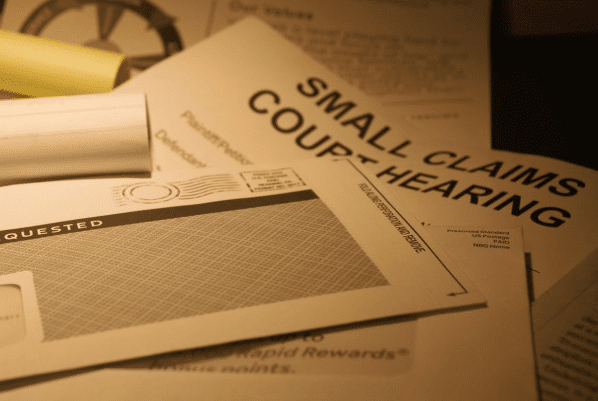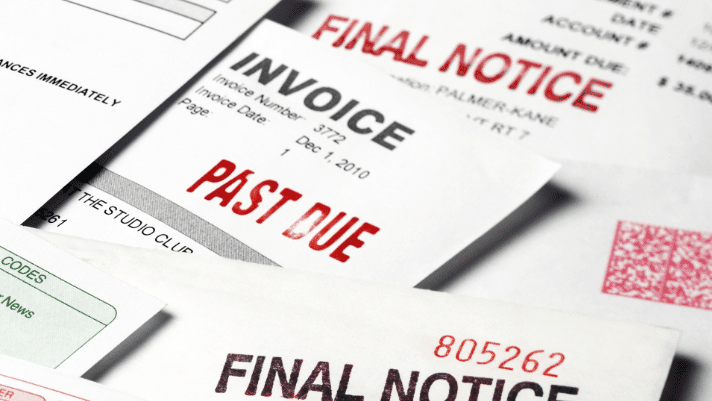In Michigan, when facing a debt lawsuit, time is of the essence—you typically have 28 days or less to respond. Missing this deadline could result in a default judgment against you, which nobody wants. The key to avoiding this is filing an Answer to the Summons and Complaint.
In your Answer, it’s crucial to address each claim made against you and assert any affirmative defenses you may have. This not only ensures that your side of the story is heard but also strengthens your position in the case.
Feeling overwhelmed? Don’t worry—ZumaZip is here to help. Our platform simplifies the process of drafting and filing an Answer in any Michigan court. With our assistance, you can navigate the legal proceedings with confidence and ease.
Table of Contents
- Deadlines
- Answer Forms
- Steps to Respond to a debt collection case in Michigan
- Court Locations
- Michigan Legal Aid Organizations
- Statute of Limitations in Michigan
- What Happens if I Don’t Respond
- Michigans Debt Collection Laws
- Dealing with Fraudulent Debt Collectors
- Key Takeaways
- Guides for Other States
Dealing with debt collection can really take a toll on your stress levels. And when it escalates to a debt collection lawsuit, the pressure can feel overwhelming. It’s tough knowing you need to file an Answer to a summons for a debt collection suit.
Hiring a lawyer might not be an option for many, especially if you’re already struggling financially. But here’s the thing: if you don’t respond within a certain timeframe, the court might rule in favor of the creditor by default. That’s the last thing you want.
But hey, don’t lose hope just yet! ZumaZip is here to lend a hand. By following the steps outlined below, you can stand up for yourself, which is already half the battle. This article will guide you through how to answer a summons for debt collection. You’ve got this!
Michigan deadline for answering a debt collection Summons
A lawsuit begins when your creditor files a Summons and Complaint. As soon as the creditor files those documents, the clock starts on the case. At that point, you only have a specific period to respond.
In Michigan, the time you have to respond to a Summons for debt collection can vary depending on how you receive the paperwork.
- 21 days — If you receive the paperwork in person (also called “being served”).
- 28 days — If the paperwork is mailed to you instead.
- 28 days — If you get the documents outside of Michigan.
How to respond to summons for debt begins when you file and serve your document, which is called an Answer. There are a few essential things to keep in mind:
- These deadlines are stringent.
- The clock starts as soon as you are served.
- Keep in mind that the response times include weekend and non-business holidays. If the 21st (or 28th) day ends up being a day that the court is closed, the deadline is the next day that the court is open.
Again, these deadlines are a no-miss. If you miss it, that’s it. You will not defend yourself, and the court will enter a default judgment. While it might be possible to ask the court to set aside the default judgment and give you a chance to respond, that is rare and should not be expected.
The creditor can collect from you once the default judgment is in place.
The default judgment will be for the full amount of money they claim you owe. This means that there’s no chance to dispute the amount or whether you even owe the debt in the first place. The most likely way they will collect will be through garnishment. The garnishment will take money out of your paycheck before seeing it. This will undoubtedly put you in a worse financial situation, so make sure you know all deadlines.
Michigan Sample Answer to Complaint Forms
The way that you answer a Summons for debt collection is by drafting and filing your own document, called an Answer. Filing the Answer lets the Court know that you are disputing some or all of the claims made against you. If you do not answer, then the Court assumes the allegations to be true. This again leads to the default judgment.
You can use ZumaZip’s Answer form, for free.
You can also try using Michigan’s statewide Answer form, but you’ll have to fill this out out manually.
By filing an Answer in time, you keep your rights to argue about this matter in court and to get notice of future hearings.
Filing the Answer lets the court know that you are disputing some or all of the claims made against you. If you do not answer, the court assumes the allegations are true. This again leads to the default judgment.
Steps to answer a Summons for debt collection in Michigan
We break responding to a debt collection lawsuit into three stages. We’ll look at each one.
- Answer each issue of the complaint
- Assert your affirmative defenses
- File your Answer with the court and send a copy to the plaintiff
Simply by answering the lawsuit, you’ve already thrown a wrench into the works of the debt collector. Creditors would prefer to sit back, get a default judgment, and start taking your money rather than going to court. But as soon as you challenge them, they have to work harder to show you owe the debt. And you have the chance to prove you do not owe it.
Each of these steps is a fairly formal process that needs to be done correctly.
1. Answer each issue of the Complaint
The Complaint that you receive will likely have several issues set forth. Each issue will be in a separate numbered paragraph. Be sure to answer every paragraph of the Complaint to let the court know which issues you are disputing.With ZumaZip’s Answer form, all you have to do is enter the number of claims or allegations listed in the Complaint document. Then, ZumaZip’s software will prompt you to choose one of the following responses for each claim:
- Admit: like saying, “This is true.”
- Deny: like saying, “Prove it.”
- Deny due to lack of knowledge: like saying, “I don’t know.”
Keep in mind, most attorney suggest that you deny as many claims as possible. This requires the debt collector or creditor to do more work on their part to prove their case. If they don’t have the documentation to prove their claism, the case will most likely be dismissed.
ZumaZip makes it easy to respond to all the paragraphs.
Similarly, Michigan’s statewide Answer form has a space for you to respond to each paragraph by checking one of the three boxes that state:
- I agree with the statements in paragraph 1.
- I disagree with the statements in paragraph 1 because _________________.
- I do not know if the statements in paragraph 1 are true.
The downloadable form makes this easy. You can hover your cursor over the box that applies to that paragraph to add to the checkmark. Only choose “agree” if you know it is true. Similarly, only choose “disagree” if you know it is not true, and can offer a supporting statement as to why you do not agree. If you do not know, choose “I do not know.” If the paragraph has over one claim, only choose “agree” if all the claims are true.
Make sure that you are comfortable with each response before you submit it. You cannot change an answer to a paragraph once it is submitted. It is also essential to choose “agree” if or when the section is true. You do not need to deny each separate paragraph to win your case. You should, however, deny every paragraph that is not true.
2. Assert your defenses
You can assert a legal defense when you need to go beyond just “disagreeing” with the Complaint. Asserting a defense (or an “affirmative defense”) is how you can show the court that the creditor does not have a case against you.
ZumaZip walks you through each defense and helps you apply the right ones.
Common defenses come up in response to a summons for debt collection. With Michigan’s form, they are even laid out for you, just like the choices for your Answer. The options include the 12 most likely defenses. The possibilities also reference the proper Michigan debt collection law to cite. Some defenses are:
- Lack of standing is a powerful defense tool when you can correctly assert that the debt collector has no legal basis for filing the suit. This defense is usually appropriate when the debt has been bought and sold without a clear paper trail from the original owner of the debt.
- Asserting that the debt has already been paid
- The allowable time frame to collect has run out (referred to as the “statute of limitations”)
- There is a problem with the contract itself
Again, you can check the box next to any affirmative defense that applies to you. Make sure that you fill in any blanks associated with that defense. You should also attach any supporting paperwork when requested.
If there is another defense you think is applicable that is not listed, you can check the box next to option 13 for “other” and fill in the defense yourself. For example, if you believe they are suing the wrong person, you could list ‘improper party’ as a defense. If you believe the amount listed is incorrect, you could counter with another amount. If you believe the creditor has been improper, you can also explore How To File an FDCPA Complaint Against Your Debt Collector.
However, keep in mind that while there are quite a few affirmative defenses available, your inability to pay the debt is not one of them.
3. File the Answer with the court and serve the plaintiff
Once you complete your Answer, print it out to sign and make four copies. Then file the original with the court, either in person or by first-class mail.
ZumaZip files for you, so you don’t have to miss work. You don’t even have to leave your house. Michigan does not charge any fee to file an Answer, so you do not need to worry about costs.
The next step will be to serve your Answer on the plaintiff (who is the creditor suing you.) Their contact information will be on the original Summons. Make sure that you complete the certificate of service at the bottom of the “Answer” portion of your two remaining copies. Then, file one copy with the court (again in person or by first-class mail) and keep the remaining copy.
You should also get together all the documents that support your Answer to bring along to your court hearing.
Next, you should serve a copy of the Answer to the plaintiff through first-class mail or personal service. It is a good idea to send your Answer via certified mail return receipt requested. When there is an attorney for the plaintiff, serve the Answer to the attorney rather than the plaintiff.
Michigan court locations for debt collection lawsuits
Debt collection lawsuits in Michigan are held in either District or Circuit Courts.
- District Courts handle cases up to $25,000.
- Circuit Courts are for claims above $25,000.
- Small claims courts take cases for less than $6,500; small claims courts are a division of the District Court.
District and circuit courts exist for every county in Michigan, and there can be many locations within a county, depending on its size.
One perk (if it can be called that) to being sued is that you do not need to determine which court is appropriate to file in. Since the creditor started the lawsuit against you, they have already designated a court. That court information, including district/circuit, address, and telephone number, will be on the first page of your complaint. You should also reference the case number in your response paperwork.
Now, if you receive a complaint against you for debt collection and the location of the court seems incorrect, double-check. You can always look up your court location for your residence in the Trial Court Directory.
You can also find all Michigan Court information, locations, and phone numbers here.
Michigan Legal Aid Organizations
Michigan has a lot of different legal aid services available to its residents. Please see below for links to major legal aid organizations. These resources can either help with debt collection cases or put you in touch with someone who can help based on your location:
- Michigan Legal Help
- State Bar of Michigan Legal Aid by County
- Michigan Courts Self-Help Center
- Michigan Legal Aid Offices
- Legal Services of South-Central Michigan
- Legal Services of Eastern Michigan
- Legal Services of Northern Michigan
- Legal Aid of Western Michigan
Statute of limitations on debt in Michigan
The statute of limitations for many consumer debts in Michigan is six years. This includes:
- written contracts,
- oral contracts,
- promissory notes and
- open-ended accounts like credit cards
This limitation applies after a debt is over six years overdue or has not been paid in six years. So, once the Michigan statute of limitations has passed, creditors and debt collectors may no longer take legal action.
However, it is essential to note that the clock for the statute of limitations on debt in Michigan starts when a consumer misses a payment on a debt or defaults on the terms of the contract. The starting of the clock on the statute of limitations is often confused with when the debt started. So, if you took out a loan or credit card six years ago and made payments until two years ago, the statute of limitations would not pass for another four years.
Michigan has its version of the federal Fair Debt Collection Practices Act (FDCPA), known as the Collection Practices Act. Both laws prohibit deceptive statements or act to collect on a debt and outlaw harassment or abuse.
The Michigan debt collection laws are even better than federal in terms of protection for consumers. The federal law applies only to outside debt collectors or third parties the original creditor hires to collect a debt. However, the Michigan state law applies directly to creditors, lenders, and third-party collectors.
What happens after you answer a Summons and Complaint?
Filing an Answer to the Summons for debt collection puts the lawsuit officially in dispute.
The court will set a hearing to determine the schedule of the lawsuit and set deadlines for the rest of the proceedings. This may be referred to as a scheduling order or hearing notice that you receive in the mail. Take careful note of all the dates and deadlines.
If you have not received your notice of hearing from the court within 15 days of filing your Answer, call the court clerk to check-in. You should make sure they have it and get an update. That phone number will be on the front page of the complaint against you.
When preparing for your debt collection hearing, it is important to gather evidence to prove your argument. Bring all documents that support your checked answers. This can include any documents that support your argument or statements from other people who know firsthand what went on.
What if I can’t pay a debt collection lawsuit?
While there are many legal defenses you can offer in your Answer for debt collection, the inability to pay for a debt is not one of them. That said, it may be your reality. In that instance, you may want to consider filing for bankruptcy, which allows you to walk away from the debt.
Any debt collection cases or actions are immediately put on hold because of the automatic stay as soon as you file bankruptcy. If you can file for Chapter 7, there is a strong chance that you could walk away from the debt entirely.
What if I haven’t been sued yet?
If you haven’t been sued yet but you’re receiving collections notices, there’s a proactive step you can take: send a Debt Validation Letter. Whenever a debt collector reaches out to you, whether by phone or mail, you have the right to request validation of the debt. This letter asks the collector to provide evidence that they own the debt and that you owe the amount they claim. It’s a way to ensure you’re being treated fairly and accurately.
This letter serves as official notice that you dispute the debt and mandates the collector to furnish evidence confirming your obligation. Until validation is provided, they are prohibited from contacting you or pursuing collection efforts further. Check out this handy flowchart for a visual guide on how a Debt Validation Letter can work in your favor.
Craft your personalized Debt Validation Letter effortlessly with ZumaZip in just a few minutes.
What is the law on debt collectors in Michigan?
Many Michigan consumers are experiencing financial difficulties, such as job losses, increased mortgage payments, or medical emergencies. You need to be aware of the dos and dons of debt collection and tips on spotting and avoiding debt collection scams. Awareness and knowledge can help combated the anxiety associated with debts and debt collectors.
Debt collectors operating in Michigan are governed by the Fair Debt Collection Practices Act (FDCPA). The law applies to individuals or companies that regularly collect debts, including attorneys and companies who buy debts and attempt to collect on them.
The FDCPA covers the collection of personal, family, or household debts, but it does not relate to debts incurred through the ownership or operation of a business.
Debt collectors in Michigan must abide by all state and federal laws. Below are examples of behavior prohibited under the FDCPA .
- Pester, abuse or use oppression with threats of physical violence, obscene language, or repeated calls intended to annoy you.
- Lie about being from the government, throwing you into jail or “debtors’ prison. ” telling you they work for a credit reporting agency, or that the documents they send you are legal when they aren’t.
- Threaten to sue you even though they don’t intend to.
- Threaten to evict you unless they have a valid legal basis.
- Provide you with a document that appears to come from a government or court.
- Use a false company name or represent themselves as someone they are not.
- Try to collect interest or fees unless your contract or state law allows the imposition of interest or fees.
Contact the Attorney General’s Consumer Protection Division, the Federal Consumer Financial Protection Bureau, or the Federal Trade Commission if you believe a debt collector is harassing you.
Dealing with fraudulent debt collectors
Dealing with legitimate debt collectors can be unpleasant, but Michigan consumers have been on edge because of increased calls from fake collectors. The fraudsters may call you repeatedly at home, work, or on your cell phone, refuse to give you their real name and address, and claim to work for a fake debt collection agency.
Phony debt collectors may have considerable personal information about you. This information may include your bank information, Social Security number, birth date, etc. Impersonators may even imitate law firms, court officials, police forces, or government organizations. In addition, they often tell you that if you don’t pay now, someone will come and arrest you.
How can you distinguish between a legitimate but unscrupulous debt collector and a fake one?
Contact your creditor regarding the call and find out who has been allowed to collect the debt by the creditor. Likewise, legitimate debt collectors must send a written notice of the debt within five days of their initial phone call. You will know the call you received was a scam if you don’t receive a notice promptly.
The Federal Trade Commission, the Attorney General, or the Federal Consumer Financial Protection Bureau should be notified immediately if you are contacted by a legitimate debt collector using any or all of the above-listed scare tactics.
Key takeaways
So, here’s how to answer a Summons for debt collection in Michigan.
- Deadline: 21 days or 28 days, depending on how you were served
- Use the ZumaZip Answer form or this Michigan Answer form
Follow these steps:
- Answer the complaint, paragraph by paragraph.
- Assert your affirmative defenses.
- File and serve the Answer.
Answering a Summons does not have to be a complicated or scary process. With the help of ZumaZip, you can preserve your legal rights and even win against debt collectors.
What is ZumaZip?
ZumaZip is a convenient solution designed to streamline your response to a debt collection lawsuit. Here’s a breakdown of what you can expect when you use ZumaZip:
Firstly, you’ll access our user-friendly web application, which guides you through the process step by step. You’ll be prompted to answer a series of questions related to your specific situation. Once you’ve completed the questionnaire, you have the option to either print out the finalized forms and mail them to the appropriate courts yourself, or you can opt to utilize ZumaZip’s services to file them on your behalf. Additionally, if you choose this option, an attorney will review your document for added peace of mind.
If you’re seeking guidance on how to effectively respond to a debt collection lawsuit, ZumaZip can provide the assistance you need. Feel free to explore our FAQs for more information on what ZumaZip has to offer.
What if I haven’t been sued yet?
If you’ve only received a collections notice, but not a lawsuit, the best way to respond is with a Debt Validation Letter. When a debt collector contacts you in any way, whether it’s by phone or mail, you can respond by formally requesting a debt validation with a Debt Validation Letter . This letter notifies the collector that you dispute the debt and forces them to provide proof you owe the debt. They can’t call you or continue collecting until they provide validation of the debt. This flowchart shows how you can use a Debt Validation Letter to win.
Get started with a Debt Validation Letter here.
How to Answer a Summons for debt collection in all 50 states
Here’s a list of guides on how to respond to a debt collection lawsuit in each state:
- Alabama
- Alaska
- Arizona
- Arkansas
- California
- Colorado
- Connecticut
- Delaware
- Florida
- Georgia
- Hawaii
- Idaho
- Illinois
- Indiana
- Iowa
- Kansas
- Kentucky
- Louisiana
- Maine
- Maryland
- Massachusetts
- Michigan
- Minnesota
- Mississippi
- Missouri
- Montana
- Nebraska
- Nevada
- New Hampshire
- New Jersey
- New Mexico
- New York
- North Carolina
- North Dakota
- Ohio
- Oklahoma
- Oregon
- Pennsylvania
- Rhode Island
- South Carolina
- South Dakota
- Tennessee
- Texas
- Utah
- Vermont; Vermont (Small Claims court)
- Virginia
- Washington
- West Virginia
- Wisconsin
- Wyoming
Guides on how to beat every debt collector
Hey there! Facing off against a debt collector can feel like a daunting challenge, but fear not! We’re here to help you navigate through it all with our handy guides designed to assist you in beating every debt collector you encounter. Whether you’re facing a new lawsuit or dealing with a persistent collector, we’ve got your back. Stay positive, stay informed, and let’s tackle this together!
- Absolute Resolutions Investments LLC
- Accredited Collection Services
- Alliance One
- Amcol Clmbia
- American Recovery Service
- Asset Acceptance LLC
- Asset Recovery Solutions
- Associated Credit Services
- Autovest LLC
- Cach LLC
- Cavalry SPV I LLC
- Cerastes LLC
- Colinfobur
- Covington Credit
- Crown Asset Management
- CTC Debt Collector
- Cypress Financial Recoveries
- Delanor Kemper & Associates
- Eagle Loan of Ohio
- Educap
- Estate Information Services
- FIA Card Services
- Forster & Garbus
- Freshview Solutions
- Fulton Friedman & Gullace LLP
- Harvest Credit Management
- Howard Lee Schiff
- Hudson & Keyse LLC
- Integras Capital Recovery LLC
- Javitch Block
- Jefferson Capital Systems LLC
- LVNV Funding
- Mannbracken
- Mariner Finance
- Medicredit
- Michael J Adams PC
- Michael J Scott
- Midland Funding LLC
- Mullooly, Jeffrey, Rooney & Flynn
- Mountain Land Collections
- MRS Associates
- National Collegiate Trust
- Nationstar Foreclosure
- Northstar Capital Acquisition
- NCEP LLC
- NRC Collection Agency
- OneMain Financial
- Palisades Collection LLC
- Pallida LLC
- Paragon Revenue Group
- Pinnacle Collections Agency
- PMAB LLC
- Portfolio Recovery Associates
- Provest Law
- PYOD LLC
- Reunion Student Loan Finance Corporation
- Revenue Group
- Regents and Associates
- RSIEH
- Salander Enterprises LLC
- Second Round Sub LLC
- Security Credit Services
- Sherman Financial Group
- Suttell and Hammer
- T-Mobile
- Transworld Systems
- Tulsa Teachers Credit Union
- UCB Collection
- Velo Law Office
- Velocity Investments
- Waypoint Resource Group
- Weinberg and Associates
- Wolpoff & Abramson
Settle your medical debt
Having a health challenge is stressful, but dealing medical debt on top of it is overwhelming. Here are some resources on how to manage medical debt.
- Am I Responsible for My Spouse’s Medical Debt?
- Do I Need a Lawyer for Medical Bills?
- Do I Need a Lawyer to Fight Medical Bill Debt?
- Does Bankruptcy Clear Medical Debt?
- How Much Do Collection Agencies Pay for Medical Debt?
- How to Find Medical Debt Forgiveness Programs
- Is There a Statute of Limitations on Medical Bills?
- Medical Debt Statute of Limitations by State
- Summoned to Court for Medical Bills — What Do I Do?
- Summoned to Court for Medical Bills? What to Do Next
Stop calls from Debt Collectors
Do you keep getting calls from an unknown number, only to realize that it’s a debt collector on the other line? If you’ve been called by any of the following numbers, chances are you have collectors coming after you, and we’ll tell you how to stop them.



































